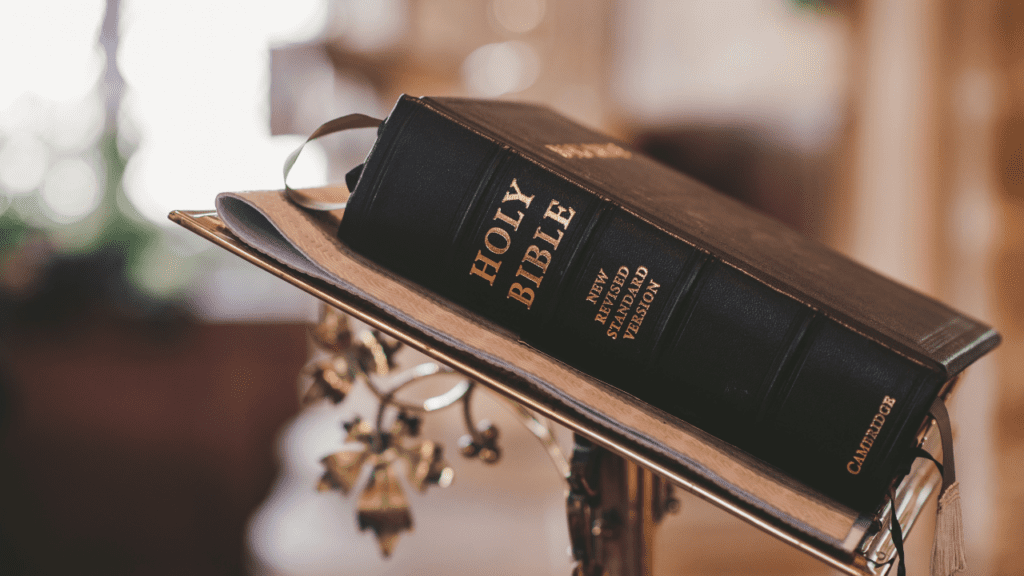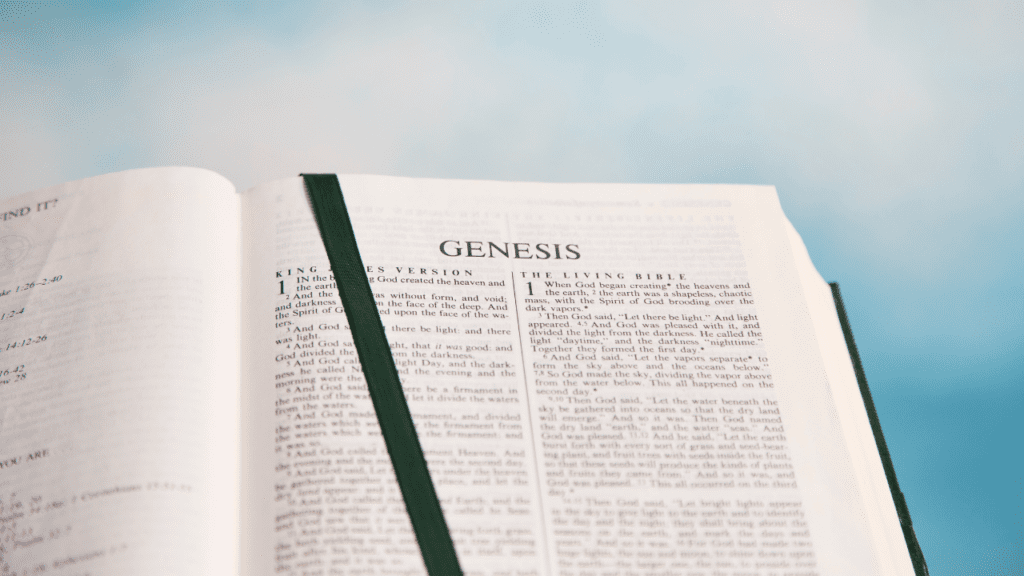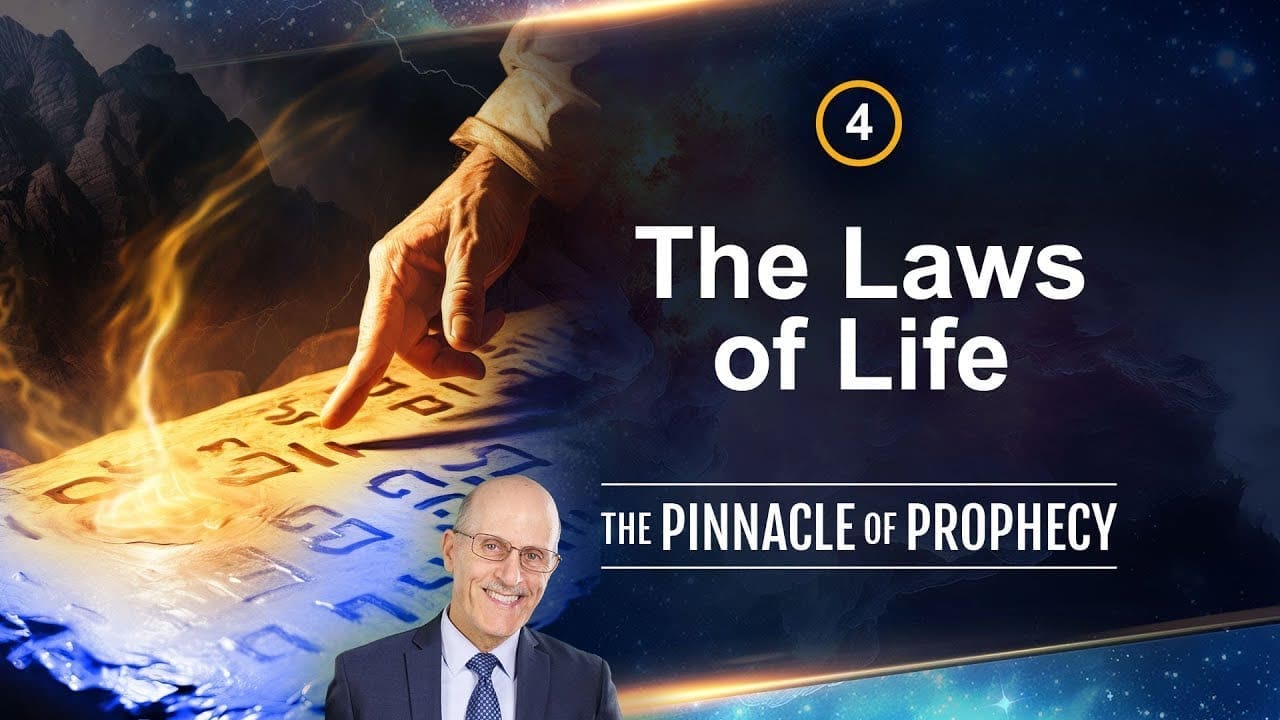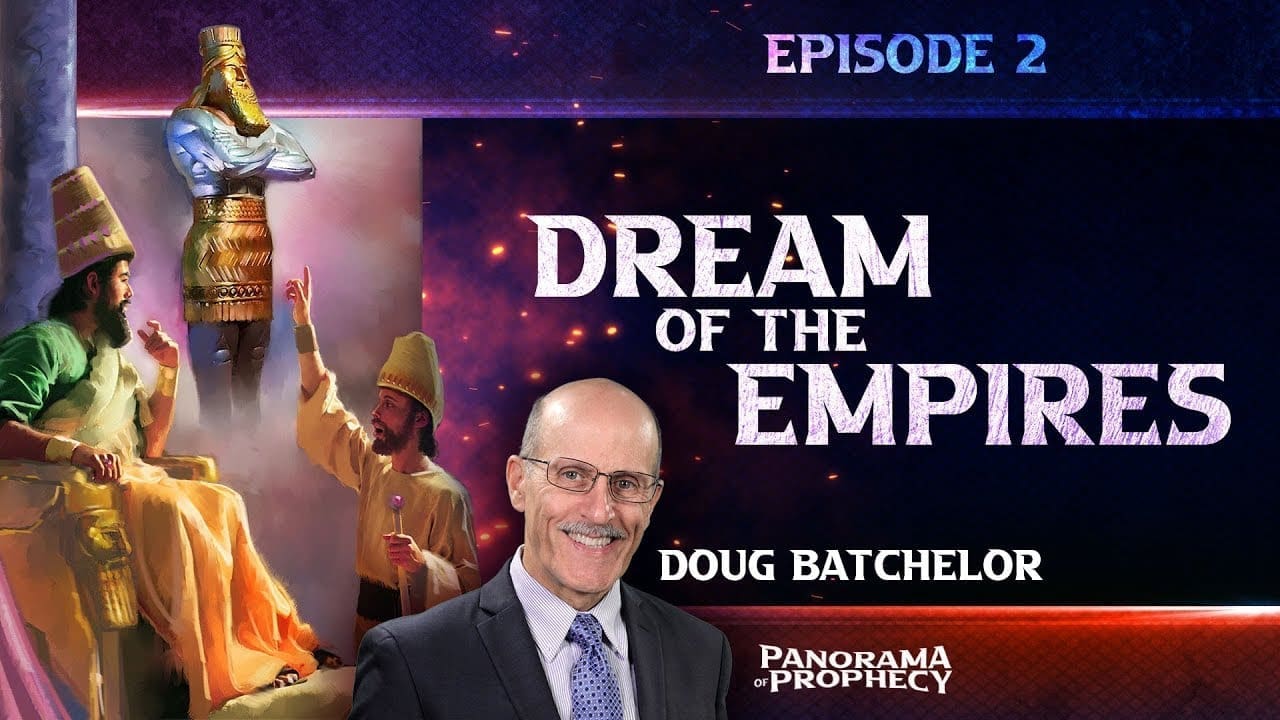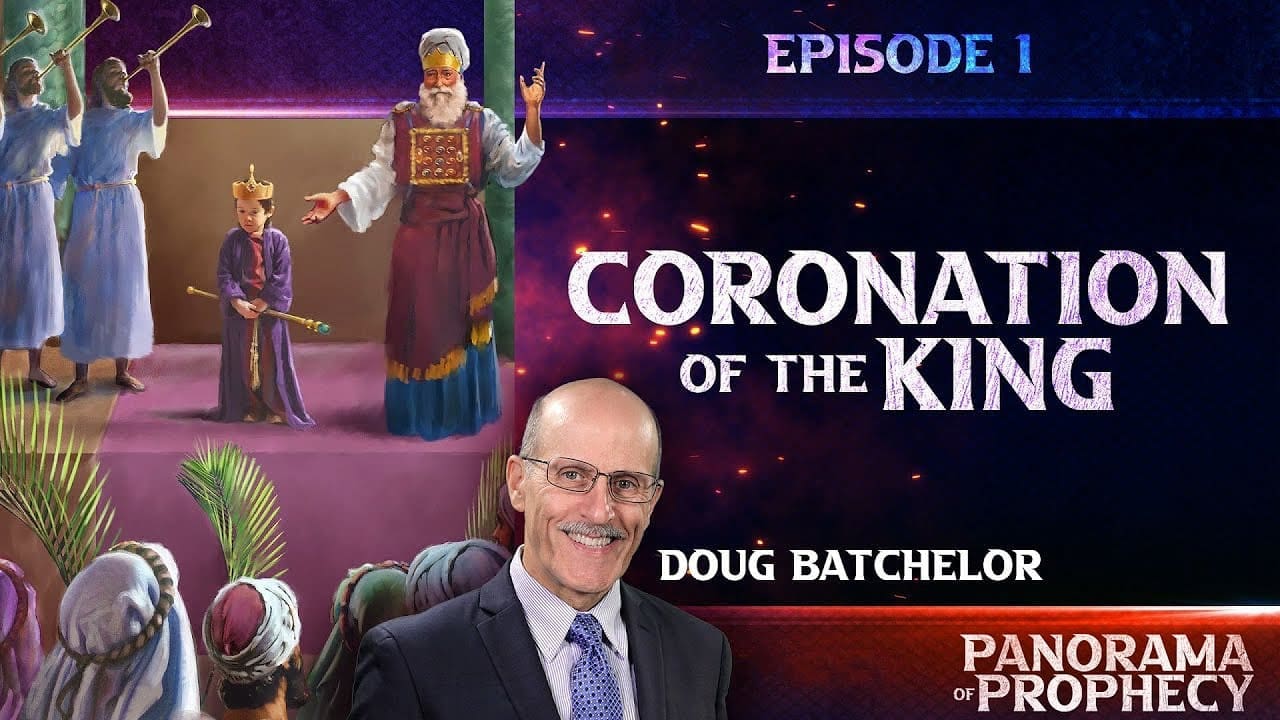Some time ago, a mate of mine was driving through Ohio on his way to New York City. At least, that’s where he thought he was heading until he saw a massive bus speeding past him, clearly marked New York City. It was quite puzzling. Either the bus driver was wrong, or he was. So he pulled into the next service station and asked, “Excuse me, is this the way to New York City?” The attendant smiled and replied, “Yes, if you want to go 25,000 miles.”
It was then that he realized he had taken the wrong direction after stopping at a restaurant. He quickly turned around and headed in the right direction.
This experience of my friend clearly illustrates what is happening to many people in their religious lives. No matter how sincere someone may be, they can still be sincerely wrong. Sincerity alone is not enough to reach the right destination. Sometimes Christians find out they have been mistaken. They may have been led astray by others and find themselves going in the wrong direction. It is crucial for Christians to keep open minds and hearts and be willing to change course if necessary to align with unfolding truth. Ultimately, truth cannot be everything; it is confined within the boundaries of what is revealed in the Bible. While people may be wrong, God’s Word never is.
Sunday Services
Now let’s apply this to a peculiar situation we find in the world today. Despite having the same Christ and the same Bible, there are Christians who observe two different Sabbath days. And a sincere heart cannot help but ask, “Which one is right?”
There are many who have been told, and sincerely believe, that the observance of the seventh-day Sabbath was abolished at the cross, and that Sunday, the first day of the week, became the Lord’s day in honour of the resurrection. On the other hand, there is another group of equally sincere Christians who believe that the original seventh-day Sabbath is the true Lord’s day to be observed by all, even after the cross.
Friends, if there ever was a time I prayed for God’s help to speak with fairness and honesty, it is now. We all know that multitudes of sincere and devoted men and women are following the path their ancestors walked without questioning why they keep the day they do. Yet, we must learn, and I believe we have learned, one vital truth. We need scriptural support for every Christian practice we follow.
God’s word reveals the truth on the issue. If we are wrong about the Sabbath question—wrong in either direction—God’s word will surely expose that error. And I believe that every honest person wants to know the truth, even if it turns out to be different from what they expected. If the Scriptures reveal that I am keeping the wrong day, then I should be willing to make a change, don’t you think?
I know some say that it doesn’t matter which day we keep, as long as we keep one day in seven. Have you ever heard someone talk like that? Does it truly not matter? Is any day acceptable to God? Let’s turn to the Book, to the Bible in your hand, and see what we discover. We will look at three statements.
First, let’s look at Revelation 1:10: “I was in the Spirit on the Lord’s day and heard behind me a great voice, as of a trumpet.” Evidently, the Lord has a day. But which day is it? We find the answer in Matthew 12:8: “For the Son of Man is Lord even of the Sabbath day.” There must be something special about the Sabbath. Through the prophet Isaiah, God refers to the Sabbath as “my holy day” (Isaiah 58:13). Nowhere in Scripture does He designate any other day as His.
So, the Lord has a day, and that day is the Sabbath. But now, we ask, which of the seven days is the Sabbath? We turn to the very heart of the Ten Commandments for our answer: “Remember the Sabbath day, to keep it holy. Six days you shall labour and do all your work, but the seventh day is the Sabbath of the Lord your God” (Exodus 20:8-10). That is clear, isn’t it? Now we have learned three things: the Lord has a day, the Sabbath is the Lord’s day, and the seventh day is the Sabbath.
Let’s examine verse 11. It tells us why God instituted the Sabbath: “For in six days the Lord made the heavens and the earth, the sea, and all that is in them, and rested the seventh day. Therefore, the Lord blessed the Sabbath day and hallowed it.” Evidently, there is a strong connection between the Sabbath, creation, and the Creator.
But who made the world? Who created this earth? You would say, “God did.” Yes, but let’s turn to Ephesians 3:9: “And to make all men see what is the fellowship of the mystery, which from the beginning of the world has been hidden in God, who created all things through Jesus Christ.” John 1:10 declares, “He was in the world, and the world was made through Him, and the world did not know Him.” Could any statement be clearer? Yes, Christ, in His pre-existence before Bethlehem, created this world.
Consider what happened. “And on the seventh day God ended His work which He had done, and He rested on the seventh day from all His work which He had done. Then God blessed the seventh day and sanctified it because in it He rested from all His work which God had created and made” (Genesis 2:2-3). Do you see it now? The One who made this earth is the One who made the Sabbath. Jesus had every right to say, “The Son of Man is Lord of the Sabbath day,” for He made it. He had every right to say, “If you love Me, keep My commandments,” for it was He Himself, back in Eden, who first gave commandments to humankind.
Can we truly grasp the impact of what we have just discovered? Listen. The Christ of Calvary is the Creator of Genesis. To reject one is to reject the other! Have you ever thought about that? To reject one is to reject the other! Oh, friends, why do we try to isolate the Sabbath and place it apart? Why are we so unwilling to leave it right where God placed it—in the very centre of His eternal law?
When I go to a city and talk about issues like youth offenders, improving community, and salvation from sin—when I point people to the Word of God regarding adultery, stealing, and killing, and show how Christ can bring victory—every Christian stands behind me, and even many non-Christians do too. They say, “Brother Joe, what a wonderful work you’re doing for humanity!” But the moment we mention the Sabbath of the fourth commandment, eyebrows are raised, questions are asked, and excuses are piled high. Why is that I ask you? Why?
It’s perfectly alright to talk about the first or second commandment, or the sixth, seventh, or eighth. But don’t mention the fourth. Why? Let’s be consistent. You can see that the commandments stand or fall together. Either they are still in force, or they aren’t. Either it is wrong for me to lie, kill, and steal, or it isn’t. We don’t make excuses for breaking the other commandments. So, why the fourth? I have often wondered how such a clear and simple matter as our relationship to grace and the commandments of God can be made to appear so confusing. People say, “I’m saved by grace; I don’t need to keep the law.” Have you ever heard anyone reason like that? But my friend, do grace and forgiveness release us from obeying the very law we have broken? If I am saved, will I pick your pocket? Will I lie? Will I steal? Will I kill? No, commandment keeping becomes a possibility for a heart that loves its Lord. Love makes all the difference.
Now, some without thoroughly considering it have told us that the seventh-day Sabbath is Jewish and therefore not for us. But Jesus said, “The Sabbath was made for man,” and that means all people. The Saviour Himself instituted the Sabbath two thousand years before there was a Jew. He gave the Sabbath alongside marriage, and the Sabbath is no more Jewish than marriage. Woman was made for man. Have you ever heard anyone say, “I can’t get married because it’s Jewish”? I doubt it.
The deeper you delve into this subject, the more you investigate, the stronger your conviction will be that something is not right. In some crucial matters, we have been simply going with the flow, without questioning. You may be thinking, “I believe you’re right. Evidently, the seventh day is the correct day to observe. But how can we be sure that the day we now call Saturday is the seventh day of Bible times?” Let’s examine the following texts: Luke 23:52-56; 24:1. “This man went to Pilate and asked for the body of Jesus. Then he took it down, wrapped it in linen, and laid it in a tomb that was cut out of the rock, where no one had ever lain before. That day was the Preparation, and the Sabbath drew near. And the women who had come with Him from Galilee followed after, and they observed the tomb and how His body was laid. Then they returned and prepared spices and fragrant oils. And they rested on the Sabbath according to the commandment. Now on the first day of the week, very early in the morning, they, and certain other women with them, came to the tomb bringing the spices which they had prepared.”
Do you see how these words settle the matter? Three days are mentioned here—the preparation day, the Sabbath, and the first day of the week. Notice that two of the days are given sacred titles, while the other is simply referred to as the first day of the week. Oh, I know it doesn’t explicitly say Friday, Saturday, Sunday. But we all know that Jesus was crucified on what we now call Friday and rose from the dead on what we now call Sunday. The Sabbath is the day in between. It’s as simple as that!
Keep in mind that these words were not written that weekend and immediately sent to press. No, they were written many years after the cross. Yet, the inspired writer still calls the seventh day the Sabbath and Sunday simply the first day of the week. That is significant, isn’t it? Think it through.
I hope you won’t be satisfied with a superficial understanding of the Sabbath subject, my friends. It is of utmost importance to know how we relate to the ten commandments that God inscribed with His own hand.






